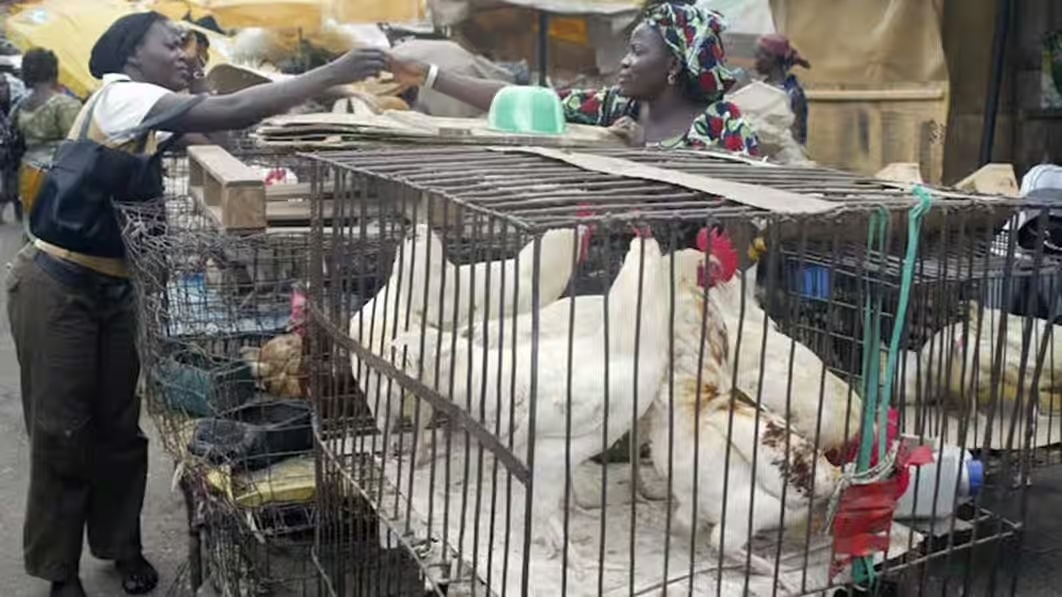
No doubt, the wheat industry is in a dire strait, considering the enormity of its current challenges. This has negatively impacted the price of flour, forcing many bread producers to shut down, while confectionary makers also abandon the business, as they could not break-even.
Indeed, the supply gap of the produce seems to be getting wider on a daily basis. According to the US Department of Agriculture’s data, Nigeria produces about 60,000 metric tonnes, and yearly demand stands at between 4.5 and 5.0 million tonnes, leaving a huge deficit gap yearly.
According to data sources, the country’s wheat import has been growing massively in the last six years. For instance, Knoema, an international research firm, revealed that the country’s imports quantity increased from 350,000 tonnes in 1971 to 650,000 tonnes in 2020 growing at an average yearly rate of 10.21 per cent.
In its report, Knoema noted that Nigeria imported 6.5million tonnes of wheat last year. The report said Nigeria was among 15 countries that imported the highest dollar value worth of wheat the same year.
In the continent, Egypt and Nigeria were reported to have imported the largest amount of wheat — Egypt: $2.7b (5.7 per cent of total imported wheat), while Nigeria imported value of $2.06b was (4.3 per cent) of the global total.
The National President, Wheat Farmers Association of Nigeria (WFAN), Salim Muhammad, said Nigeria spends over $4.2b yearly on importation of wheat to meet its local demand of over 4.7 million metric tonnes.
A study by KPMG attributed the growth in wheat demand to usage by manufacturers of wheat-based foods such as flour, pasta, semolina, noodles and wheat meal.
According to the study, the size of the Nigerian biscuit segment has been estimated at N121b, having grown at a common annual growth rate (CAGR) of 16 per cent in the past five years.
Though the Central Bank of Nigeria (CBN), few weeks ago announced that it has facilitated the importation of about 13,000 metric tonnes of improved and heat-tolerant wheat seeds, which were being multiplied in Jos, Plateau State and other locations, but farmers and other stakeholders are of the opinion that the step is just like a drop of water in the ocean, as it will not bring the expected solution to the struggling industry.
A wheat farmer based in Zaria, Kaduna State, revealed that the country is heading towards another year of low wheat production as banditry and kidnapping activities have pummeled Northwest Nigeria, which is the primary wheat cultivation region.
He added that wheat is grown mostly in Borno, Bauchi, Yobe, Kano, Jigawa, and Zamfara states, saying, “Currently, these states are under intense military operations to expel terrorists and bandits. These restrictions make it highly difficult for farmers to access their farms. Closing the produce supply gap may take some time as we are far from producing maximally because the will-power is not there at all.”
A farmer based in Kano, Ahmadu Muhammadu said the problem facing the industry is likely to continue as the agric sector is not well organised and developed.
He said: “Over the decades, successive administrations have introduced policies to improve domestic agriculture and food processing but they have remained unsuccessful.
“Now, we heard about the Anchor Borrower Scheme, but wheat farmers here have never had a taste of this intervention. Unless other policies are introduced, to improve farmers’ productivity, scarcity of wheat may not be solved soon.”
The Chairman of Wheat Farmers Association, Kebbi State, Mohammed Augie lamented that while they are just coming out from the challenges of the COVID-19, the current situation has hampered the efforts of the farmers.”
According to him, until quality and improved seedlings are given to farmers and the necessary supports, including funding and access to input, increase productivity from farmers will be a mirage.
The Food and Agriculture Organisation (FAO) identified Nigeria among the top 20 importers of wheat. In 2015, Nigeria was ranked 11th. In 2016, the country was in the 18th position, while in 2017, it was ninth. In 2018, it was in the 13th position and in 2019, it again ranked 13th.
Since 2014 to 2021, according to Statista GmbH, a Germany based international research group, Nigeria has been among the principal importing countries of wheat, flour and wheat products.






